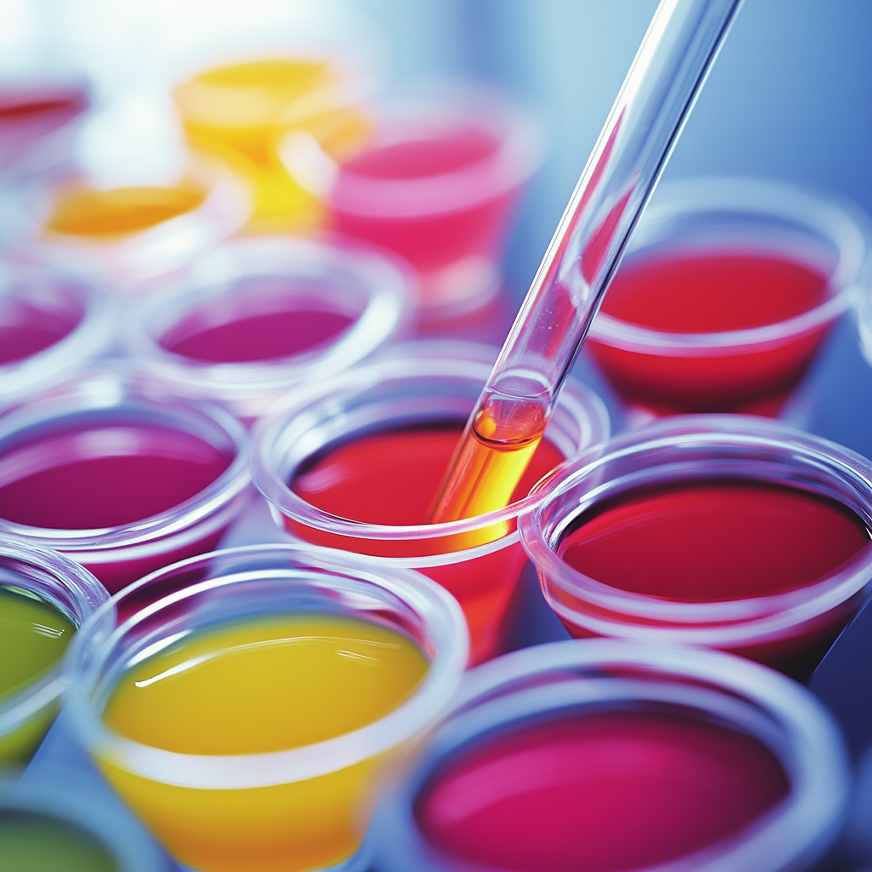The Czech University of Life Sciences Prague researchers and BioResources and Technology Division (BRT) members Ing. Jan Staš, Prof. Ing. Jan Banout, Ph.D., and Assoc.Prof. Dr. Hynek Roubik recently published an article in Life (section Microbiology, Special Issue Food Microbiological Contamination). They have developed an innovative method to analyse the anti-yeast activity of natural compounds in fruit juices. This new approach not only promises to enhance the screening of the antimicrobial potential of natural compounds in beverages but also aligns with the growing consumer demand for natural food preservatives by discovering new candidates for juice preservation.
The Problem with Yeasts in Juices
Yeasts are common contaminants in fruit juices, leading to spoilage and reduced quality. Traditionally, chemical preservatives have been used to tackle this issue, but they often raise health concerns among consumers. The research team, led by Ing. Jan Staš and colleagues from BRT and LEE, sought to find a natural alternative that is both effective and safe.
The Innovative Solution
The study focused on adapting and validating a modified broth microdilution method to screen the anti-yeast activity of plant phenolics in apple and orange juice models. This method is more efficient and less resource-intensive compared to traditional techniques. Among the twelve plant phenolics tested, four compounds—pterostilbene, oxyresveratrol, piceatannol, and ferulic acid—showed significant inhibitory effects against common yeast strains like Saccharomyces cerevisiae, Zygosaccharomyces bailii, and Zygosaccharomyces rouxii.
Key Findings
- The effectiveness of the modified broth microdilution method for assessing the anti-yeast activity of natural agents in fruit juices was confirmed.
- Pterostilbene emerged as the most potent compound, with minimum inhibitory concentrations (MICs) ranging from 32 to 128 µg/mL in both apple and orange juices.
- Oxyresveratrol, piceatannol, and ferulic acid also demonstrated moderate anti-yeast activity, with MICs between 256 and 512 µg/mL.
Implications for the Food Industry
This research opens up new possibilities for the food industry to use natural preservatives, reducing reliance on synthetic chemicals. The modified broth microdilution method developed in this study can be a valuable tool for quickly and efficiently screening potential natural preservatives, saving time and resources.
Conclusion
The findings of this study represent a significant step forward in the quest for natural food preservatives. By harnessing the power of plant phenolics, we can improve the quality and safety of fruit juices, meeting consumer demands for healthier and more natural food products.
Keywords
antifungal; food safety; natural preservatives; plant compounds; Saccharomyces cerevisiae; Zygosaccharomyces
Citation
Staš, J., Houdkova, M., Banout, J., Duque-Dussán, E., Roubík, H., & Kokoska, L. (2024). Adaptation and Validation of a Modified Broth Microdilution Method for Screening the Anti-Yeast Activity of Plant Phenolics in Apple and Orange Juice Models. Life, 14(8), 938.
For more details on BRT activities, subscribe to our newsletter or follow us on social media for regular updates and highlights.


